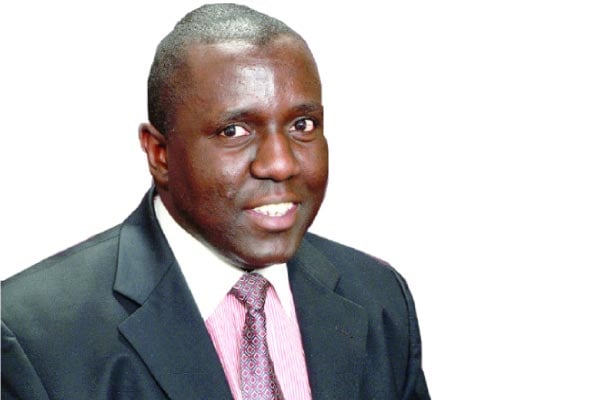Prime
How cancer is arriving in the national conscience

Author: Karoli Ssemogerere. PHOTO/FILE
What you need to know:
- Then again, another story this week about the high levels of arsenic and mercury found in rice.
The stillness of the Uganda Cancer Institute speaks to something bigger. Seeing another of our high school cohort looking up to the heavens for relief.
And then in a space of seven days, three middle aged professionals succumbed to cancer, one brain cancer, one colon cancer, and one to cancer of the pancreas. We always share messages in this community affected in the same way.
When I visited last, this once vibrant architect, behind the designs of Judiciary Square at the High Court, all we could offer was prayer. Palliative care is the only option after all efforts have failed.
Then another in the same cohort, the Class of 1986, the children who sat Primary Leaving Examinations right after the war had ended. In our school, they were a very competitive bunch. For us the juniors behind them at St. Mary’s College, Kisubi, we used to watch in awe, how their class positions were separated by decimals of a point. They really gave you a “national” picture.
They were competing nationally against others from the big schools of the day, Budo, Gayaza, Namilyango, Mwiri etc. These schools still exist but have been unclothed by more punishing demographics and economics. The children of farmers, primary school teachers have been replaced by the children of the politically connected, mafuta mingi etc. No one comes to school with a suitcase on their head with fresh fruits as grab. Hills of hope, like the Kisubi mission of yester years, have gone corporate. All these schools are behind concrete walls.
But then something else hit a raw nerve. I shared with my physician, who left Kisubi for Budo, to breathe fresh air, but found an even more ruthless competitive regime, who now lives in Kentucky, the news of the passing of our friend. He then told me another of his classmates had been diagnosed with cancer, aged just 50.
In a space of a few years, at least four students from the same class have fallen to cancer. In morbidity, single digits, that is 10 out of 100,000, is nothing.
In Uganda, according to the National Cancer taskforce recently reported in the Daily Monitor, some prevalences are now around 400 out of 100,000. What then happened?
In December, in a conversation over dinner in Dar es Salaam with the head of the Communications Regulator in Tanzania, he mentioned something, to the effect the incidence of cancer was very high for residents of the lake region.
In the article, blame was pointed at unregulated discharge of effluents in the lake. We already know the blue waters of Lake Victoria are long gone. What is missing is the connection with human fatalities.
In November 2021, masses of dead Nile Perch began to appear in the Lake. The official response was it was a biological issue, the residents of island lakes state it was poisoning of Nile Perch for their valuable fish maw, the regenerative tissue used to treat burns, graft skins and cosmetic surgery. Nile perch heals like human skin.
Then again, another story this week about the high levels of arsenic and mercury found in rice. In the story of post Ukraine inflation, and skyrocketing of the price of food, this also had a cancer connection. A research team tested “kayiso” rice, a popular form of the rice staple, and found levels of elements unsafe for human consumption.
To their surprise, their recommendation that we wash rice before cooking it, would not work either! The researchers said they found that the water sources had even higher levels of arsenic compounds and mercury. Talking to my close friend, a cancer survivor, whom I was telling how much I enjoyed posho made from maize grown on our small lot, he told me, maize flour was no longer on the menu. High levels of aflatoxins from milling maize with high moisture content had compromised the quality of maize flour.
I will continue this conversation, how this “cancer epidemic” all sounded a surprise to my law school professor, one of the country’s biggest legal brains now in professional exile from the legal profession.
Karoli Ssemogerere is an Attorney-At-Law and an Advocate. [email protected]




